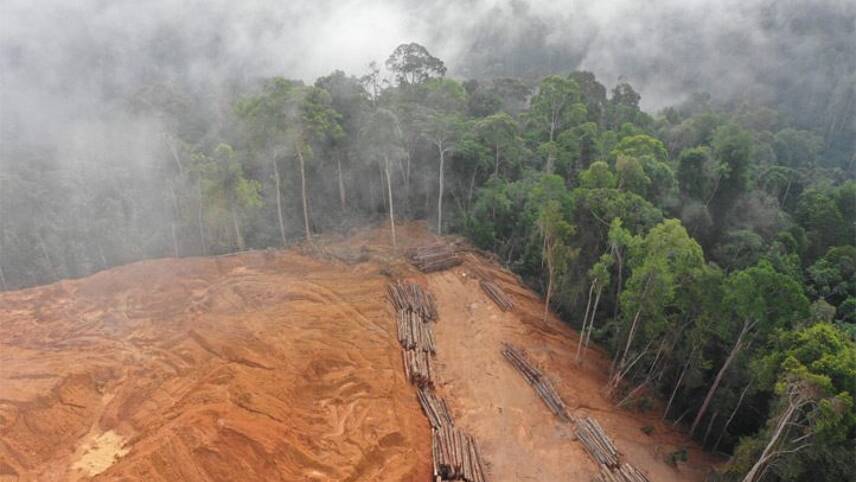Register for free and continue reading
Join our growing army of changemakers and get unlimited access to our premium content

The rate of deforestation in the Amazon is the highest it's been in more than a decade
A new paper released on Biodiversity Day at COP27 by WWF warns that the Amazon rainforest may die by 2030, due to the impacts of the climate crisis and man-made deforestation.
The report warns that the rainforest, dubbed the “lungs of the world”, is close to various tipping points and thresholds that could push it into a “permanently degraded state” that it may not recover from.
The report is a self-proclaimed “alarm bell for humanity”, warning that 34% of the Amazon biome area has experienced at least one of three tipping points in relation to rainfall, dry season length and deforestation or conversion of natural habitat. These tipping points, highlighted by the Science Panel for the Amazon, would see the forest change permanently, with more frequent drought and fires preventing recovery.
The area currently close to these tipping points equates to 2.4 million km2 – approximately one quarter the size of Europe. WWF warns that without action, the indigenous communities located in the area would be at severe risk and the 1.5C limit of the Paris Agreement could well be breached.
WWF’s chief forest advisor Professor Mary Gagen said: “This paper sounds an alarm bell for humanity, revealing the twin threats of climate change and forest loss are pushing the world’s largest rainforest alarmingly close to a precipice. We could lose the Amazon to a state of permanent, irreversible degradation that would impact the entire planet.
“The more the Amazon is destroyed, the more we limit our ability to stay within 1.5 degrees. The evidence gives a stark warning that we need to take the tipping point risk seriously and act to immediately cut emissions and address the cavalier attitude to forest loss and degradation which are sending people and planet down a path to disaster. Only by listening to the voices of Amazonia’s peoples and by protecting and restoring nature can we bring our world back to life.”
Political change and charges
Jair Bolsonaro was ousted by Luiz Inacio Lula da Silva, commonly known as Lula, after almost four years in power.
In environmentalist circles, Bolsonaro is hated as a figure who, at best, failed to stop deforestation and pollution in the Amazon, and, at worst, actively encouraged damaging practices. Greenpeace has publicly called the man “a catastrophe for the environment”. Activists on the ground in Brazil have reported a “race” to clear land ahead of the election given the prospect of Bolsonaro’s premiership ending. A report from Carbon Brief states that deforestation rates could fall by around 90% with Bolsonaro out.
Lula has promised to update Brazil’s Paris Agreement commitments and to appoint a climate envoy. In his campaign, he also touted the creation of a new collaboration with other rainforest nations to coordinate and accelerate conservation.
Lula has his work cut out. Deforestation in the Amazonian region of Brazil hit a six-year high at the start of 2022, with national space agency Inpe reports that almost 4,000 square kilometres of land was cleared between January and June. In comparison, 3,000 square kilometres of rainforest was cleared the same period the year before.
Bolsonaro’s Government is currently on the receiving end of a human rights complaint to the UN, as a result of its deforestation plans.
Five Brazilian NGOs – WWF Brazil, the Articulation of Indigenous Peoples of Brazil (APIB), Conectas Human Rights, the Instituto Socioambiental and the Observatório do Clima – submitted the complaint, arguing that guaranteeing people’s right to healthy environment, which is recognised as a human right by the UN, should mean that the destruction of nature ceases immediately.
Commenting on the complaint to the UN, the Brazilian Indigenous lawyer Eloy Terena who heads the legal work at the Articulation of Indigenous Peoples of Brazil (APIB), one of the complainants, said: “Indigenous peoples are environmental defenders. When we fight to defend our lands, we are fighting for life on the whole planet.
“If one Indigenous Land is invaded, deforested, if one indigenous group is threatened, harassed, the whole globe suffers the impact. The Bolsonaro Administration violated the Brazilian constitution and international treaties on human rights, and we cannot accept that.”


Please login or Register to leave a comment.